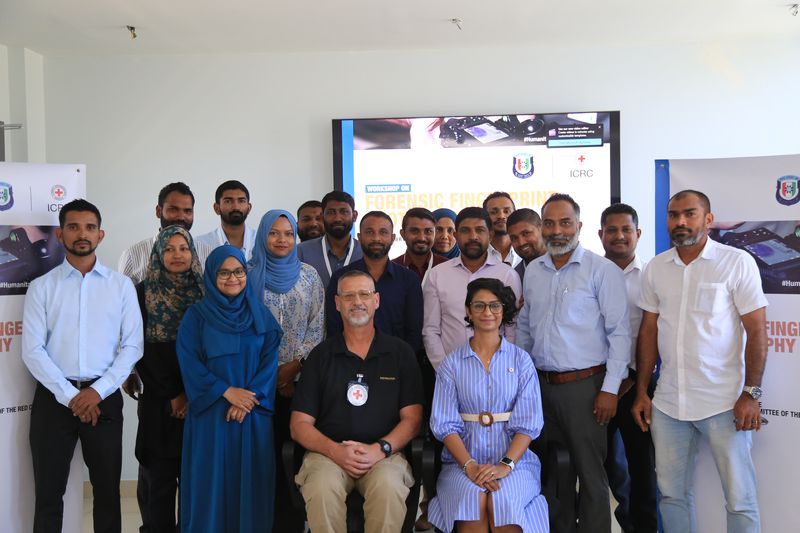The ICRC jointly with MPS, convened a five-day workshop on forensic fingerprint photography for MPS fingerprint officers from October 14 to 18, 2024, with the aim of improving the forensic human identification process through effective and innovative fingerprint techniques. A total of 17 forensic fingerprint analysts engaged in the workshop, which enhanced their capacity to identify deceased individuals, especially those retrieved from aquatic environments, thereby reducing the likelihood of unidentified individuals.
The participants developed specialized skills to optimize the application of fingerprint combined with photography techniques for improved forensic human identification purposes while utilizing scientific fingerprint macrophotography. The workshop comprised informative lectures and practical exercises that explored the essential principles of forensic fingerprint photography, as well as vital micro and macro photography techniques. The course insights enabled the participants to refine existing techniques for identification by employing both practical and innovative approaches while refining the existing process. The training methodologies would yield a beneficial humanitarian effect, particularly in scenarios involving significant fatalities as well as routine postmortem forensic human identification casework with the available ante mortem fingerprint data in the Maldives. The techniques could function as an auxiliary instrument to the MPS’s standard operating procedures, potentially accelerating responses for families seeking their deceased loved ones in the wake of disasters and other emergencies.
The Indian Ocean, comprising 99 percent water and merely one percent land, serves as the vital essence of the Maldives, indicating that any alteration in the ocean profoundly affects the islands. The Maldives, comprising 200 islands, presents a meticulously organised oceanscape divided into 20 administrative units of varying capacity (known as Atolls). The potential for considerable disasters after any seismic activity and resultant tsunami in the Indian Ocean remains prevalent.
The 2004 tsunami led to considerable loss of life on the island, prompting national authorities to enhance their preparedness for responding to similar disasters in the future. The constrained forensic capabilities, coupled with the rising fatalities resulting from disasters and other emergencies, present an enormous obstacle for the relevant authorities. This situation complicates the processes of managing and identifying the deceased, while also affecting the families and communities yearning for clarity regarding their lost loved ones. With this background the International Committee of the Red Cross (ICRC) New Delhi Regional Delegation has continually engaged in enhancing the forensic capabilities and refining the competencies of the Maldives Police Service (MPS) under the Ministry of Home Affairs since 2018.
The workshop contributed significantly to the ongoing efforts of the ICRC to enhance the Maldives’ forensic services for human identification, addressing the recognized challenges and facilitating the specific needs. In alignment with addressing the rights of the unidentified, unknown, or unclaimed deceased during and following disaster and emergency situations, the ICRC is committed to enhancing capacity, raising awareness, and refining the procedures that facilitate the identification of the deceased.




